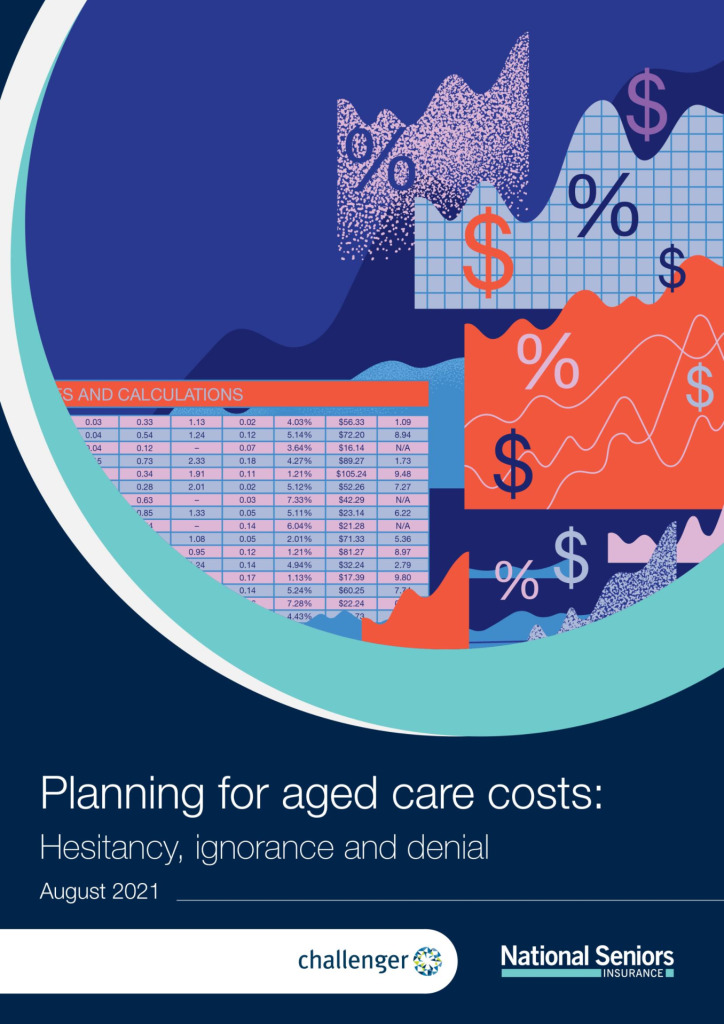To better understand seniors’ willingness to financially plan for age care, we analysed responses from over 5,000 older Australians 50 years and over who took part in the 2021 National Seniors Social Survey.
To better understand seniors’ willingness to financially plan for age care, we analysed responses from over 5,000 older Australians 50 years and over who took part in the 2021 National Seniors Social Survey.
Executive Summary
Age care costs are not typically considered as important components of planning for a financially comfortable retirement. Retirement comfort is defined predominantly by lifestyle factors, with age care a distant and unwelcome possibility.
Australia's age care system is complex. The financial contribution by individuals to their own care is difficult to determine and age care is not considered a desirable commodity, especially given the recent distressing findings by the Royal Commission into Age Care.
We argue that a shift in focus is needed so that age care costs are built into later life financial planning. Having the financial resources available to access age care and support services can greatly increase retirees' quality of life and independence. A financial plan that includes age care also relieves stress and anxiety, either for family members or the older person themselves when navigating the age care system in times of crisis.
To better understand seniors' willingness to financially plan for age care, we analysed responses from over 5,000 older Australians 50 years and over who took part in the 2021 National Seniors Social Survey.
Participants answered multiple response questions about their experiences and expectations of needing age care, on budgeting and on financial planning, including planning for age care costs. They also provided information about their social and demographic characteristics.
Findings showed:
Most people believed improvements to the age care system should be funded by the Government through general revenue or an age care levy.
In summary, only people with the means, information, and motivation were more likely to plan for the cost of age care in later life.
We suggest strategies to reduce the hesitation and ignorance about planning for care and make inroads into the denial that some have about risks in this life phase.

Register or login to get access
National Seniors is a not-for-profit membership and advocacy organisation that gives older Australians – working and retired – a strong national voice. We tackle issues such as age discrimination, mature age employment, the Age Pension, social inclusion, cost of living concerns and more.
Already have an account? Login here for full content access.
Don’t have an account? Register today for full content access.